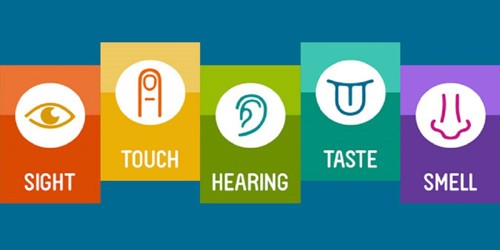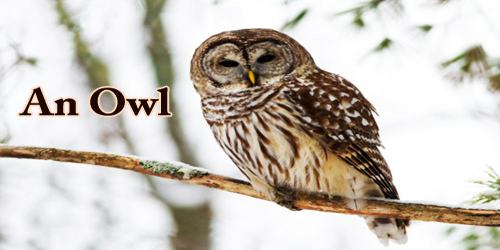Importance of five senses of Sight, Hearing, Touch, Taste, and Smell
Our senses help us to understand what’s happening around us. It is difficult to grade the senses in relative importance to mankind. Each one of them is really important in our everyday life. Opinions vary, particularly between sight and hearing. A person blind from birth has no concept of vision, so presumably does not ‘miss’ sight. Our senses send messages through receptor cells to our brain, using our nervous system to deliver that message. One of the most important senses for human survival is touch. Touch is primarily a function of the skin. Skin cells send signals through the nerves to the brain, where these signals are interpreted.
If anyone’s sense could be considered the most important, it might be sight. The loss of sight tends to train a more acute hearing. People will always help the blind in practical ways, and there are many modern aids for the visually handicapped, ranging from braille and books on tape to all kinds of domestic appliances designed for the sightless. Without the ability to see, the brain cannot easily navigate its environment, identify threats, locate food sources, or identify people for the purpose of communication. Musical appreciation and music-making are also open to the blind. Many blind people would grade vision as less important than hearing, since, given help and their own determination, they can live a relatively full life. The most essential function of hearing is our ability to communicate with others. The obvious drawback to deafness lies in the loss of communication, though today there are some marvelous machines which allow the sufferer to learn speech through varied frequencies of vibration. The traditional method of lip-reading supplements this, so that conversation and teaching can be carried out.
While all of our senses have an important function independently, they also build off of one another to influence overall perception. The social disadvantage of deafness is that of the impatience of others. Deafness is not at once obvious and so may be mistaken for stupidity. In the modern world deafness can also be dangerous; traffic-sense, particularly in children, depends largely on hearing. Touch, taste, and smell are all sources of pleasure, the two latter being important in the enjoyment of food, but they are all relatively dispensable. Their absence can, however, be dangerous; the loss of nerve endings can lead to severe domestic burns and abrasions, while taste and smell can detect lethal gases and poisonous substances.
From the human point of view, most people would grade the importance of the senses in the order given in the question. They help to keep you safe by warning you of any danger. This is not necessarily so in the animal world. Smell or ‘scent’ is of crucial importance to many animals, who rely on it to detect enemies and to find quarry. Thus it becomes far more highly developed than in humans, since survival may depend on it. For the same reason, hearing is of nearly the same importance. The hearing range of animals is much wider than that of humans. Dogs can hear supersonic sounds and react to them at great distances. Many animals have very limited vision, simply because vision is relatively unimportant. Touch and taste are also of less importance to animals than to humans, though, as with humans, these two senses, combined with a smell, have a protective role in warning them off obnoxious and poisonous organic and inorganic substances.
Our senses work together to let our brains know what is going on around us. Nobody can ask an animal to grade the importance of the senses, but it seems to be, smell, hearing, sight, touch, and taste in that order. We can use all five of our senses at the same time without even realizing it!
Information Source:















